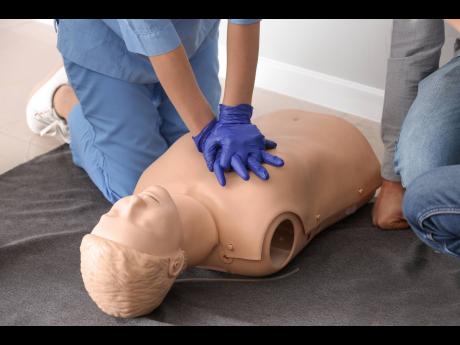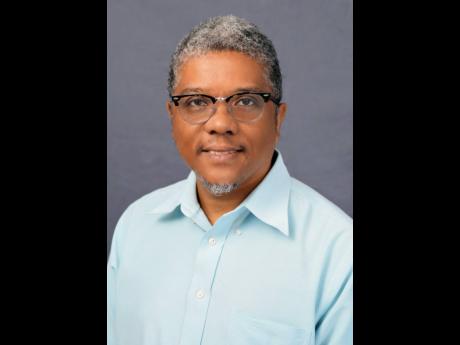Hugh Wong | Need for national cardiopulmonary resuscitation training
August 19 to 25 is observed as annual cardiopulmonary week. The aim of this initiative by Heart Foundation of Jamaica is to educate and advocate for cardiopulmonary resuscitation (CPR) in the general population.
Statistics from the US indicate that less than one-third of people who suffer sudden cardiac arrest (SCA) receive bystander CPR. Also, 95 per cent of people suffering SCA die before they reach hospital or other source of emergency help. These statistics are in a country where emergency medical services (EMS) are an established part of the health services, and where layperson CPR programmes exist and are active.
The number of people who receive out of hospital CPR in Jamaica is unknown, but it is safe to say that it is closer to zero than one-third. Formal EMS in Jamaica is restricted to a few geographical locations and are under-resourced. The need for CPR training for laypersons in Jamaica is therefore evident and pressing so as to offer the local victim of SCA a chance of survival.
SENSITISE
The aim for Heart Foundation of Jamaica to observe a CPR week is to sensitise the general public that each person has the ability to save a life. Unless this very basic skill is taught and learnt, then many lives will continue to be lost unnecessarily.
With respect to survival from SCA, five interdependent links have been identified. There is a ‘chain of survival’, which consist of:
1. Early access-recognition, notification, dispatch, and arrival of EMS providers
2. Early CPR-bystander: CPR has doubled survival rates if started immediately
3. Early defibrillation: Use of community located automated external defibrillators
4. Early advanced cardiac life support in hospital care: optimising breathing, treating causes of the cardiac arrest.
Early CPR is the important second link in the chain of survival.
It is said that the person most likely requiring CPR is someone they spend a lot of time with. It may be a family member, a co-worker, or a classmate. The need for everyone to learn CPR now becomes very personal, and in many ways it is.
The skills to do CPR are basic, and only require the physical ability to press on someone’s chest who is usually lying on their back. Giving artificial breaths, usually to a family member or someone close to you, is easily learnt. The fear of disease transmission during giving breaths is easily removed by performing chest compression only CPR. Chest compression only CPR is perfectly acceptable in that situation.
Cardiac arrest can occur at any time and any place and it could affect anyone. And as we are painfully aware, nor of age. It is therefore critical that individuals be equipped with the knowledge and skills to respond effectively, rather than be that passive onlooker who is video-taping.
WHAT MAKES EFFECTIVE CPR SOUGHT AFTER?
First, more people trained in CPR will significantly improve survival rates. Every minute counts when someone has a cardiac arrest. Permanent brain damage can occur within four to six minutes if oxygen is not supplied. This makes timely intervention critical. With more persons trained, there is the increased likelihood of someone standing nearby witnessing the cardiac arrest, and therefore the chances of receiving immediate care increases. With more immediate care and intervention, the chances of survival are thereby improved.
Second, as with any skill-set learned, training instils confidence, and decreases reluctance to act. Universal CPR training empowers individuals to act when the emergency occurs. Lack of knowledge, or fear of causing harm, make persons hesitate when faced with a patient who appears to be in cardiac arrest. Jamaica is an island of myth and cultural practices that are often contrary to conventional knowledge. Comprehensive training dispels these myths and offers understanding of cardiac arrest, enabling individuals to act decisively and effectively.
Third, universal CPR training promotes resilience in the community. There are programmes that are directed at creating community “systems” that train, promote, advocate and legislate for CPR training in select communities. By training large groups of persons, communities become better equipped at handling cardiac emergencies. A culture of preparedness and collective responsibility is fostered, and buy-in from essential stakeholders such as local leaders, politicians, and government ministries is gained.
Last, CPR training for everyone has long-term benefits for the nation. There is an increased awareness of heart health and prevention strategies to address cardiac illnesses. The population develops an understanding of the health services available, and very importantly, adopts a culture of healthy behaviours.
This national awareness for the need for a heart-healthy lifestyle, comes from the realisation that CPR is usually required for persons who do not have a healthy heart. No one wishes to be the victim.
Universal CPR training is essential for saving lives, empowering individuals, building resilient communities, and promoting heart-health awareness. It is our collective responsibility to prioritise this training and create a society where everyone is equipped to respond in cardiac emergencies.
Anyone can be a lifesaver.
Dr Hugh Wong is the director of ECC at Heart Foundation of Jamaica. Send feedback to columns@gleanerjm.com


